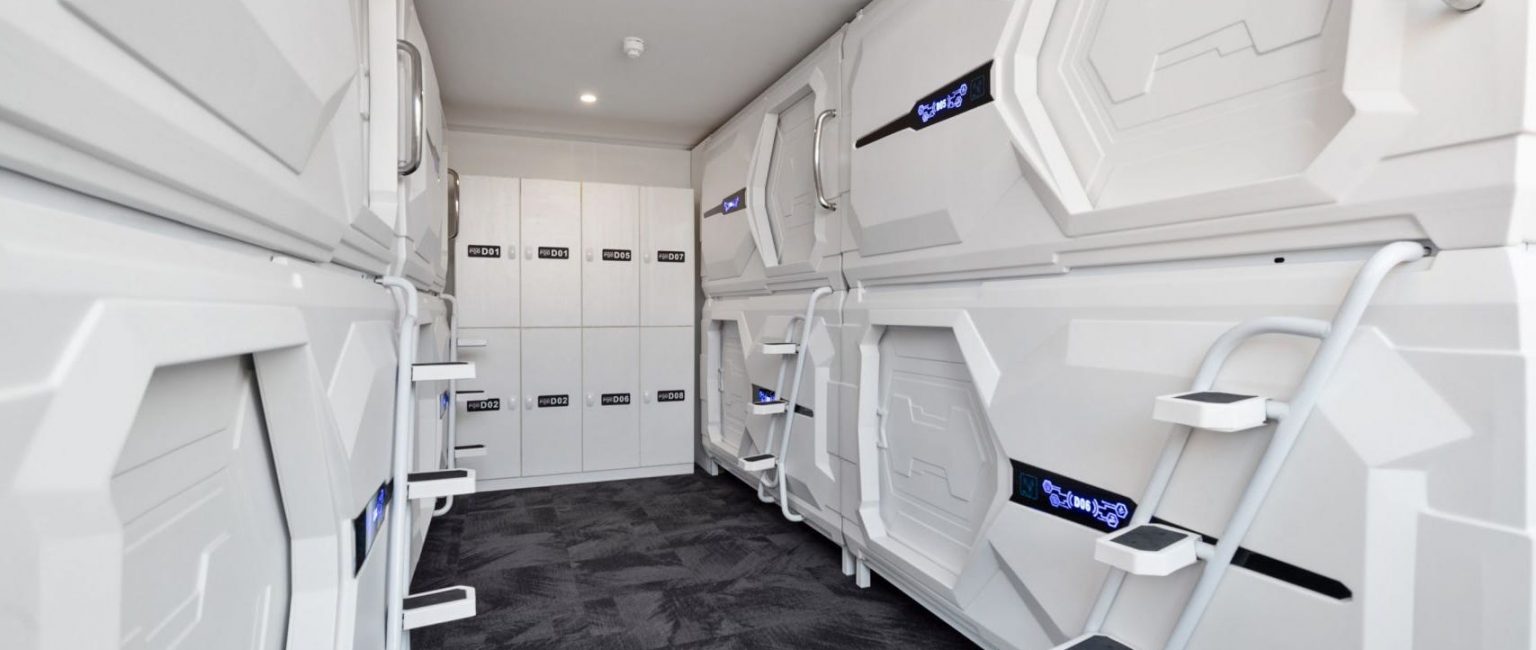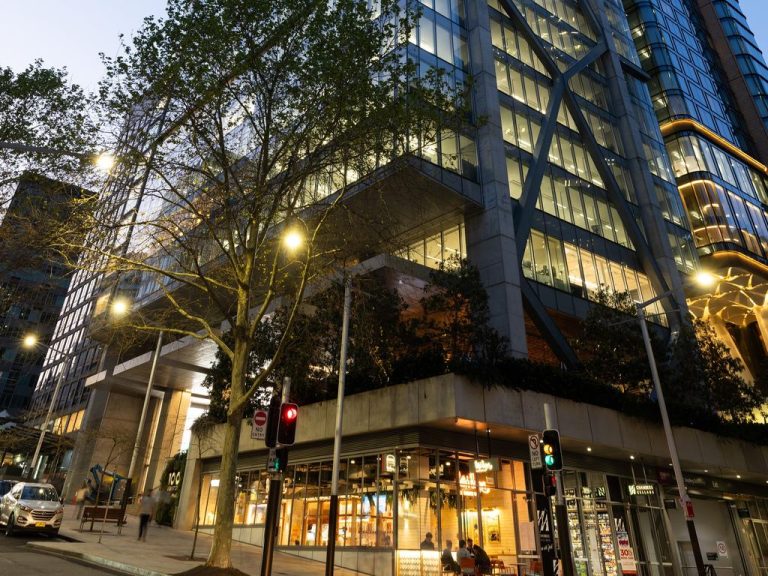Pods provide ideal alternative for budget travellers

With travel back on the agenda for many, budget ‘pod like’ hotel rooms can be a cheaper alternative to a higher end hotel experience.
“Australia is one of the more expensive destinations to travel in, whether you are a domestic tourist or an international tourist,” PropTrack economist Anne Flaherty said.
“And there are a lot of people out there who are looking for privacy that don’t necessarily want to fork out for their own hotel room, or apartment in Australia because it is extremely expensive here.”
Ms Flaherty said pod hotels filled the missing need for the more mature travellers, who wanted privacy.

For some travellers, the pods provide an easy way to socially distance from others. Picture: realcommercial.com.au/for-sale
Typically, they were not usually frequented by younger travellers, she said.
“For example, in Japan there are a lot of pod hotels for city workers who finish really late at night and just want to camp out ready to go to work the next day,” she said.
Pod accommodation was a favoured alternative amid the pandemic, Ms Flaherty said.
“I think the fact that people are more aware of social distancing and for those people who can’t afford a hotel room having a pod means that you have that little bit more separation from other people. It is easier to social distance in a pod than an open dorm.”
Tasmania’s unique pod offering
In Launceston, Tasmania the Pod Inn is one of the region’s most popular budget accommodation offerings and the only one of its kind in the island state.
“The pod accommodation originated from Japan around the 1970s,” said owner Zach Fu, who noted that the concept has been popular in places like Malaysia.
Mr Fu said 80% of guests were never seen due to the self check-in and out system offered.
“Our price is around $40-$50 a night. For most of the tourists, they are not looking to stay at a hotel for their holiday, what they need is a very good shower and a clean toilet,” he said.
“For our business, we have many bookings in this respect.”

The Pod Inn has been a popular accommodation choice since it opened in 2018. Picture: realcommercial.com.au/for-sale
All up there are 54 sleeping pods comprising two capsule bed designs, which are described as “cosy and futuristic” and are part of a dormitory style layout.
Single capsule beds span one metre by two metres, while double beds are 1.6m by 2m.
Comments from both the Pod Hotel Sydney and the Space Q Capsule Hotel were sought by realcommercial.com.au, but they were unable to provide comments by deadline.
Two years ago, Event Hospitality & Entertainment bought 50% of a New Zealand accommodation disrupter, pod hotel group, Jucy Snooze.
As part of the joint venture, Jucy Snooze was the first budget accommodation brand to join the group. When approached by realcommercial.com.au as to what stage the development of Jucy Snooze in Australia was now at, the company declined to comment.
Domestic tourism rebounds
Domestic tourism has continued to recover in 2022 as a result of pent up demand, accrued leave and accumulated savings, according to Austrade, who help develop Australia’s tourism policy and manage grant programs to support the sector.
“With borders open, Australians have shown they are as keen as ever to travel for leisure and to visit friends and relatives,” an Austrade spokesperson said.
“Travel to cities is also returning and we look forward to business travel also increasing in future.”
Furthermore, Austrade has been part of THRIVE 2030, a national strategy for the long-term sustainable growth of the visitor economy.
With domestic travel being the greatest contributor to travel spend, the national strategy has a focus on encouraging Australians to discover more of their own country and engage with more experiences, tours, Indigenous culture and attractions, the spokesperson said.
“International visitors are returning to Australia – including international students, business travellers and tourists – with global traveller numbers expected gradually to reach pre-Covid levels over the next two years,” they said.
“The shortage of workers combined with a serious flu season and ongoing Covid transmission risk are the main near-term challenges for the sector.”







